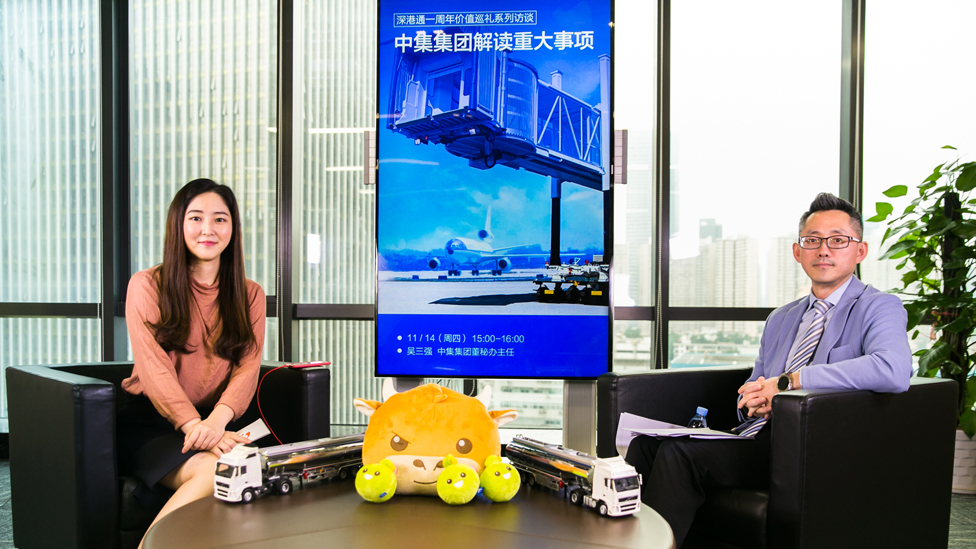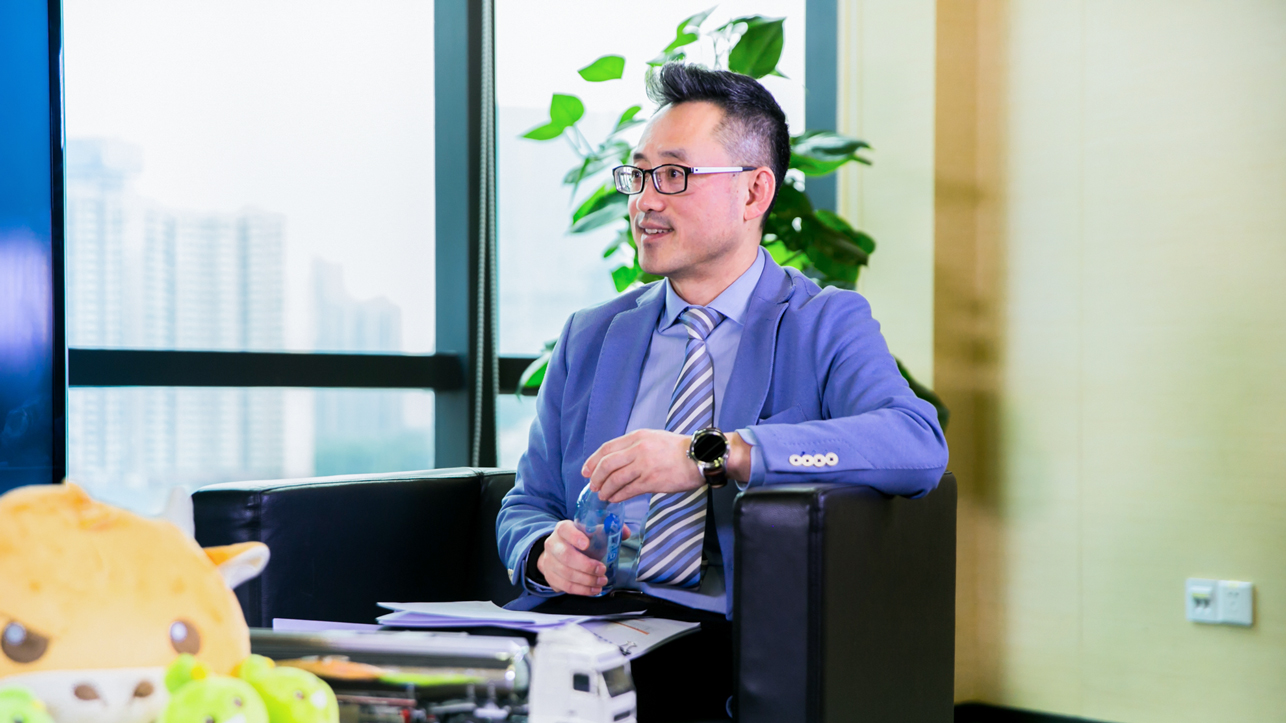
The near futureChina International Marine ContainersSell its airport business to a listed company in Hong KongFire fighting in ChinaTo attract market attention. On December 14, Dr. Wu Sanqiang, director of China International Marine Containers Dong Secret Office, visited Futu and interpreted the highlights of this transaction for investors in detail.
According to Wu Sanqiang, the airport business sold to China Fire Services is a very high-quality asset owned by China International Marine Containers, including boarding bridge, fire and rescue, automatic logistics, GSE business and three-dimensional parking garage. After the completion of this transaction, China Fire will become the holding subsidiary of China International Marine Containers, the business structure will change greatly, and it is possible to change the company's share name in the future.
Wu Sanqiang also pointed out that in the future, China's fire fighting will not be limited to the airport business, but will develop into areas with higher gross profit margins, such as industrial automation and logistics automation.
According to a research report published by Haitong, China's fire profits are expected to increase nearly eightfold if the deal is completed. At the same time, Morgan Stanley released a research report that the transaction consideration corresponding to the airport asset Deli International 2016 PE of about 30 times, the valuation is reasonable.
CIMC airport business listed as a whole with the help of China Fire Protection

Prior to the deal, China International Marine Containers held a 30 per cent stake in China Fire, its single largest shareholder, but was not within the scope of CIMC's consolidated statements, according to Wu Sanqiang. Upon completion of the transaction, China Fire Services will become a holding subsidiary of China International Marine Containers.
In this transaction, CIMC sold all its internal business belonging to the airport system to China Fire, which paid consideration for stocks and bonds. "Wu Sanqiang said.
Specifically, through Wansheng, a wholly-owned subsidiary, China Fire will acquire 78.15% and 21.26% of passenger boarding bridge supplier Pteris (Deli International) from China International Marine Containers's wholly-owned subsidiary Sharp Vision and Fengqiang at 2.992 billion yuan (RMB, the same below) and 814 million yuan, respectively. At the same time, Wansheng bought a 30 per cent stake in CIMC Tianda Airport equipment Company from Yuyun for 611 million yuan. China Fire will pay the consideration by issuing consideration shares and convertible bonds.
Upon completion of the deal, China International Marine Containers will indirectly hold more than 50 per cent of the issued shares of China Fire Services, which will become a controlling subsidiary of China International Marine Containers. At the same time, China Fire will indirectly hold 99.41 per cent of Pteris and 100 per cent of Tianda. Pteris and Tianda will become holding subsidiaries of China Fire and remain controlling subsidiaries of China International Marine Containers.
After China International Marine Containers injects the entire airport business, he can quickly enhance the overall strength of China's fire protection. For example, fire engines in the airport field will be very difficult to enter without the help of the 30-year status of CIMC airport. This transaction is of great help to the future development of fire fighting in China. "Wu Sanqiang said.
The profit of China Fire Protection is expected to increase greatly and will be incorporated into the CIMC report in the future.

According to Wu Sanqiang, the main business of fire fighting in China is to make fire engines, and now it has two assets: one is Sichuan Fire fighting vehicle Factory, whose brand is Chuanxiao, which is the oldest fire engine factory in China. Its main products are ordinary fire engines, and its domestic share ranks high. The second is the 40% stake in Germany's Ziegler Fire engine Company, which China Fire Services acquired in 2015 with 30% of its own shares. Ziegler is the oldest and most famous fire engine manufacturer in Germany and is currently in the top four in Europe.
Deli International, which is sold to China Fire Protection, is one of the large enterprises in the world to do airport baggage delivery system. After CIMC acquired it in 2013, it has been used as a platform for the entire airport business of the group. in fact, all related businesses are controlled by Deli International. After the acquisition of Deli International, we did a very important thing, relying on its base in Suzhou to rapidly develop the automated logistics system of the Group. At that time, they were already in contact with SF and some e-commerce companies, but their strength was limited. With the support of China International Marine Containers, they quickly built their business. Wu Sanqiang said that China International Marine Containers's integration of Deli International enabled it to quickly turn losses into profits and its performance grew rapidly.
Data show that in 2016, Deli International had an income of 1.52 billion yuan, a net profit of 70 million yuan and a net asset of 1.01 billion yuan. Tianda had an income of 1.15 billion yuan, a net profit of 129 million yuan and a net asset of 716 million yuan. By comparison, China Fire Services had sales revenue of 471 million yuan in 2016 and a net profit of only 17.29 million yuan.
According to a research report published by Haitong, China's fire profits are expected to increase nearly eightfold if the deal is completed. At the same time, Morgan Stanley released a research report saying that the deal corresponds to Dudley International's 2016 PE of about 30 times, the valuation is reasonable.
"what we have disclosed so far is Deli's net profit in 2016, and in fact, if approved by the shareholders' meeting, the entire delivery will be until 2018. People will ask, how about 2017? Because this is an unaudited number, I cannot talk about it casually now. But I can tell you with great confidence that this market has developed very fast in the past two years. China International Marine Containers still maintains a leading position in such a fast-growing market, that's all I can tell you. "Wu Sanqiang said.
The threshold of airport business is high, and the industry space is over 100 billion.

Talking about the industry situation, Wu Sanqiang said that the moat of the airport industry is very high compared with other industries, and there is no obvious periodicity. The automation of airport baggage transportation system and logistics system is done very early and is very competitive in China. According to public data, the automation volume of the logistics system in the United States is very large at this stage, but the annual compound growth rate is close to 10%, while China's annual compound growth rate has reached 30%, and it will be a market of hundreds of billions around 2020.
Wu Sanqiang said that the expansion and renewal of airports around the world maintained a compound growth rate of 6% to 7% a year. The boarding bridge business is basically done by CIMC, ThyssenKrupp and JBT of the United States. JBT is only in the United States, so there are basically only CIMC and ThyssenKrupp in the global large-scale boarding bridge bidding. "the large-scale domestic bids for boarding bridges in recent years are basically among us, and it is very difficult to see brands other than CIMC on a domestic business trip. "he said.
When it comes to investors' perception of China Fire's share price, liquidity and share name as high-risk stocks in the Hong Kong stock market, Wu Sanqiang said that the company is also considering and considering these issues, and the share name may be changed in the future.
"We must make investors aware of the changes and values of the enterprise. It should be said that the airport industry is no longer fully in line with the current situation of the company (China Fire Protection). It is developed from the airport, and now it has moved forward to industrial automation, to logistics system automation, to a higher level, broader market, and higher profit margin industries. Wu Sanqiang stressed.
Talking about the automation and intelligence of the airport business, Wu Sanqiang said, "the group recently launched a fully automatic boarding bridge docking at Amsterdam airport, which is actually a robot." At present, the boarding bridges in China are all operated by people, and ours is fully automated. In addition, the automation of the logistics system we do is highly intelligent, and the fully automatic high-speed sorting center of Shunfeng in Qingpu, Shanghai is contracted by us. The parking system of the group is also fully automated. As soon as you press your fingerprint in the parking lot, the car will be taken out automatically. "
